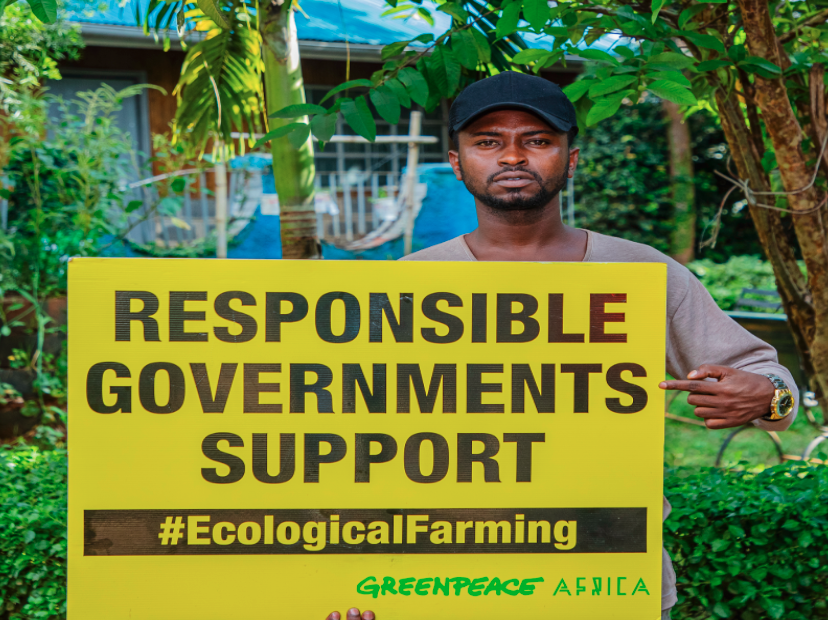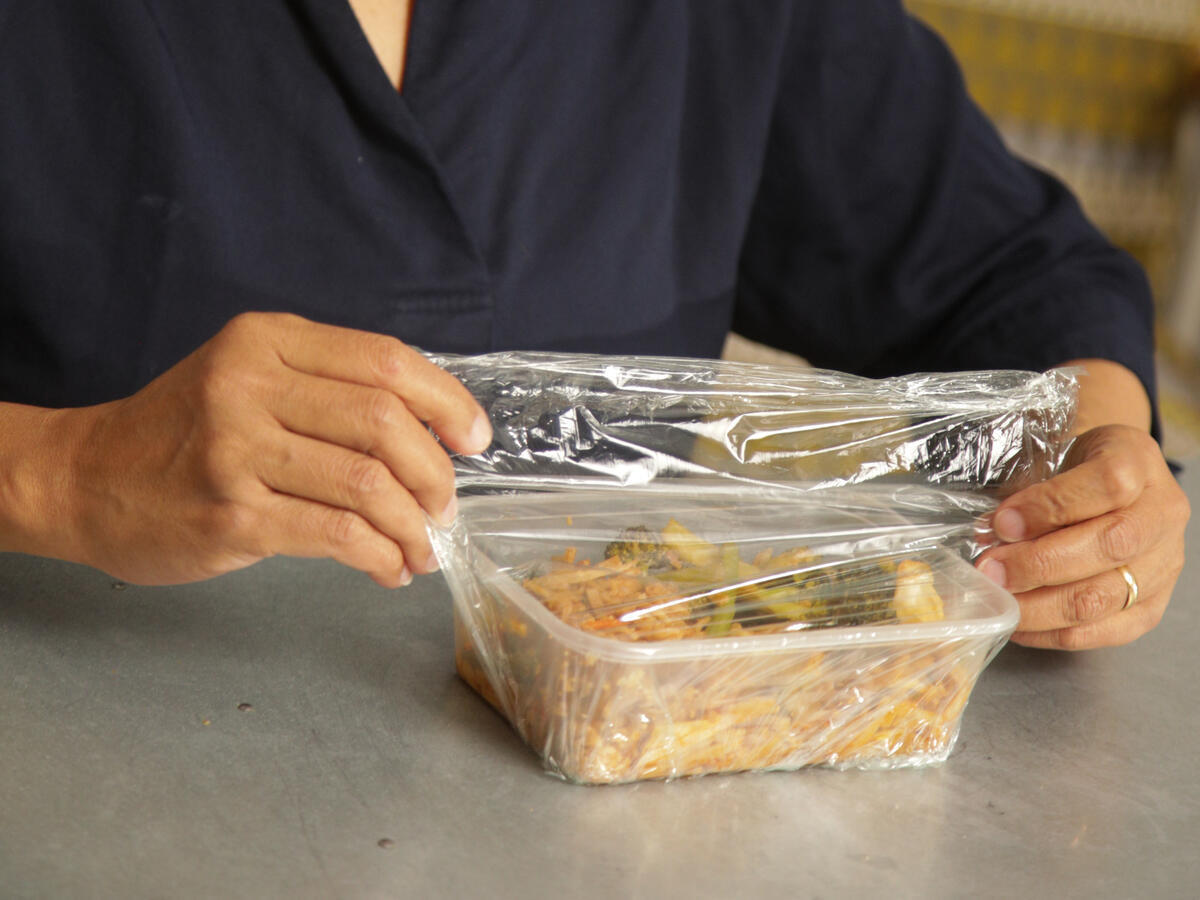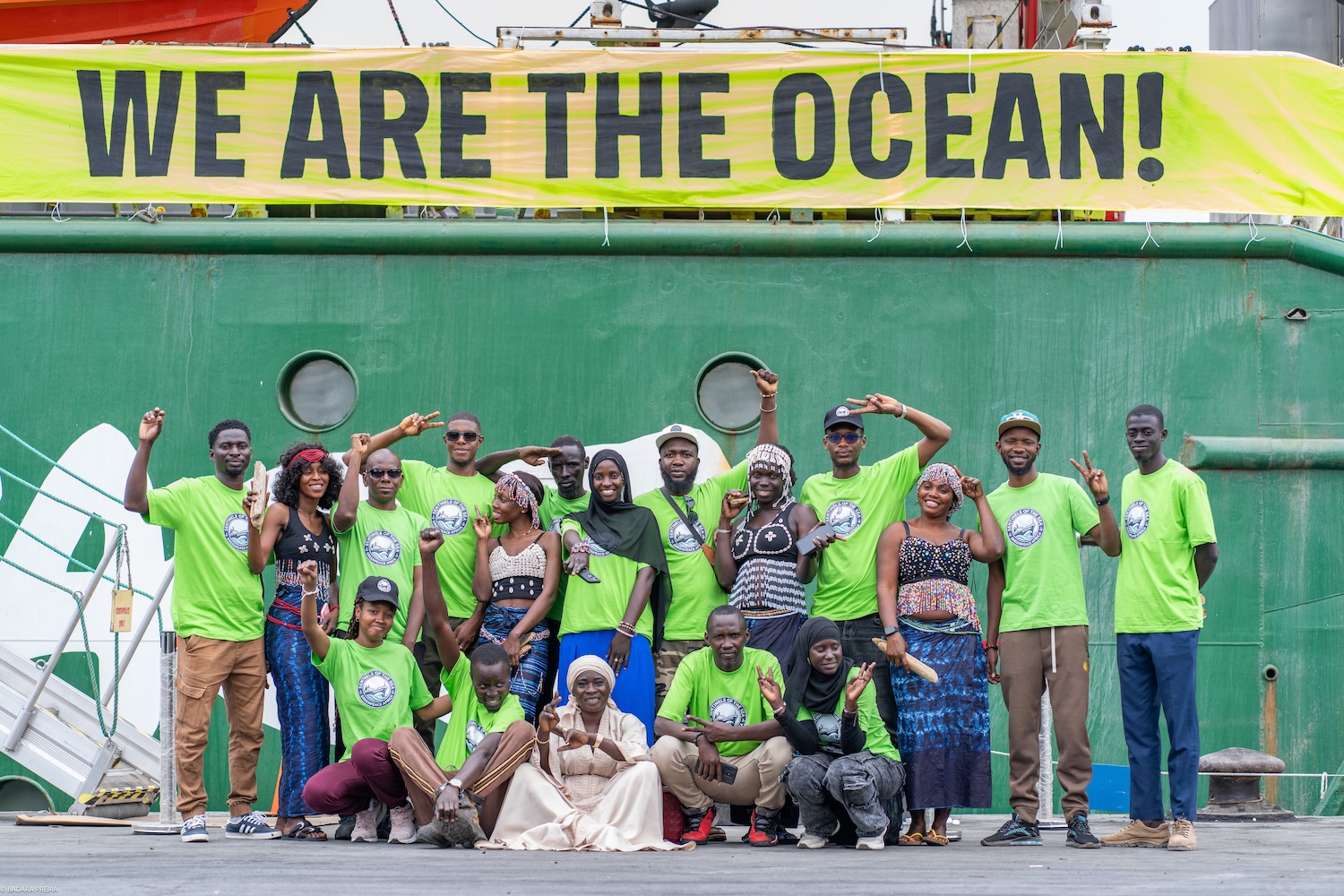
Nairobi, October 16, 2024 – So, here we are again, celebrating World Food Day. I wonder, are we supposed to celebrate the fact that small-scale farmers, who feed most of us, are being squeezed out of their livelihoods? Or perhaps we should pop some confetti for the punitive seed laws that make it illegal for farmers to save or share their seeds, forcing them to buy from corporations every planting season? And while we’re at it, maybe we can raise a glass to the fact that our food is now laced with toxic chemicals, thanks to the widespread use of synthetic pesticides and fertilizers. If this is your idea of the future of food, count me out.
As a young Kenyan, I’m looking at our food system, and I have to ask: Is this really the best we can do? The farmers who work from sunrise to sunset to grow our food are stuck under laws that benefit huge agribusinesses and chemical companies, while their own ability to survive becomes more impossible by the day. In Kenya, punitive seed laws restrict farmers from saving and sharing their own seeds—a fundamental right that has sustained agricultural biodiversity for centuries. This corporate-driven model prioritizes profits over the well-being of our farmers while ignoring the invaluable contributions of local seed systems, which are the backbone of agro-biodiversity and community resilience. I am left wondering what happened to the idea of food sovereignty.
Let’s talk about synthetic pesticides and fertilizers. You know, the ones that are supposed to help farmers grow more but are doing the opposite. Recent reports show that over 50% of agricultural inputs used in Kenya are chemical-based, leading to long-term degradation of our soils and contamination of our water bodies. The impacts of this on agrobiodiversity are dire. As these chemicals strip the soil of its nutrients, our ability to cultivate diverse crops is weakened. Monocultures take over, leaving communities vulnerable to crop failures and exacerbating the impacts of the current climate crisis. Soil health, water quality, and biodiversity are declining at an alarming rate, with devastating effects on livelihoods and food security.
Is this the future we’re supposed to be excited about?
Do we, as the young generation, have to look forward to a food system where corporations call the shots, and farmers – the actual people growing our food – have no control over their own seeds? A future where we’re literally eating the poison that’s been pumped into the soil?
This is not progress. This is not food security. And this is certainly not the future we want.
We need to start listening to the people who are directly affected: our farmers. The corporate capture of our food systems cannot and should not be the future. Our path forward is not through toxic chemicals or restrictive seed laws, but through agroecology—a farming approach that works with nature, not against it. Yeah, I know, big word – but guess what? It works. Case studies across Africa show that Agroecology offers a way out of this cycle of destruction. It is not only possible but transformative, promoting sustainable agricultural practices that strengthen the resilience of farming systems against climate change while protecting our soils, water, and biodiversity. It ensures that small-scale farmers, the custodians of Africa’s food systems, can thrive without being forced to depend on harmful external inputs or corporate control (AFSA, 2024).
The current climate crisis is hitting us hard. In Kenya, the impact is clear: our farmers are being punished, our environment is degrading, and the very future we are supposed to inherit is crumbling. This is not what we signed up for. We deserve better.
So, on this World Food Day, let’s drop the sugarcoating and call it like it is: the corporate capture of our food systems is ruining everything. Kenya, and indeed Africa, must move towards agroecology if we are to safeguard the future of our food systems. As the climate crisis deepens, this shift has never been more urgent. It is time to break free from the chains of corporate control and embrace a greener, more sustainable path—one that centers on the well-being of our farmers, our environment, and future generations.
For more information, please contact:
Elizabeth Atieno Opolo,
Food Campaigner
Greenpeace Africa
Email: [email protected] , +254701732800



